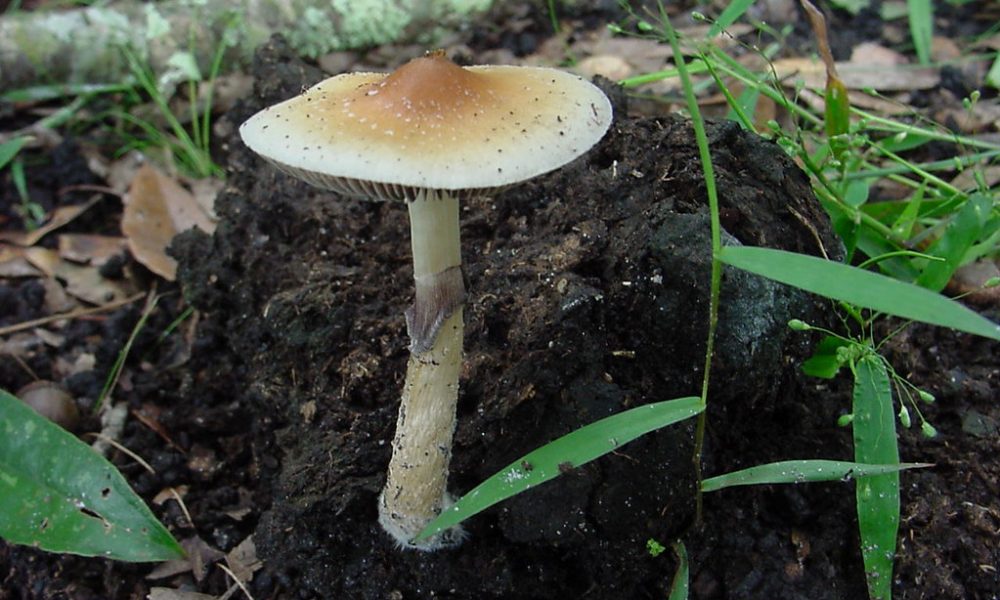Colorado lawmakers have sent a bill to the governor to create a regulatory framework for legal psychedelics under a voter-approved initiative.
The legislation from Senate President Steve Fenberg (D) passed both chambers last month, and the Senate concurred with House amendments on Tuesday in a 32-3 vote and then repassed the final measure by a tally of 24-11, clearing its path to Gov. Jared Polis’s (D) desk.
Since being introduced last month, the measure has moved quickly as lawmakers worked to enact it before the end of the legislative session on Saturday.
Overall, the bill seeks to set up regulations for a psychedelics legalization law that voters passed at the ballot last year, largely focusing on rules for using the substances in licensed healing centers under the guidance of facilitators. The proposal has received mixed feedback from advocates and stakeholders.
The ballot measure called for the creation of an advisory board to develop regulatory recommendations to inform more holistic legislation covering such access, but as that process continues, the Senate president filed the new bill last month to establish rules.
The legislation seeks to set policies on “healing centers” where adults 21 and older could receive psychedelic treatment, tighten up rules on cultivation and facilitators, establish licensing requirements, dictate state agency regulatory responsibilities and impose penalties for unsanctioned activities.
Here are some of the key components of the bill:
The bill maintains the voter-approved ballot measure’s policy of placing no limits on personal possession of psilocybin, ibogaine, mescaline (not derived from peyote), DMT and psilocyn by adults 21 and older.
Public consumption of psychedelics and underage use would be punishable by a $100 fine.
Adults could only cultivate natural psychedelics, and that activity would need to be at a private residence in an enclosed space that could not exceed 12 by 12 feet—unless within a locality that enacted a policy allowing larger grows. Cultivating beyond prescribed limits wold be punishable by a $1,000 fine.
There would be a pathway for record sealing for people with prior convictions for psychedelic-related activities that have been made legal.
A new Division of Natural Medicine under the Department of Revenue (DOR) would play a central role in regulating the therapeutic program and issuing licenses for cultivators, manufacturers, testing facilities and healing centers. That’s one difference from the initiative, which gave primary responsibilities to the Department of Regulatory Agencies (DORA).
A Federally recognized American tribes and Indigenous community working group—which was not contemplated in the ballot initiative—would be created within DORA to identify and address unintended consequences of the reform, particularly as it concerns the possible commercialization of psychedelics and religious or spiritual exploitation of native people.
The legislation clarifies that synthetic psychedelics are not permitted. And possessing psychedelics with “hazardous materials” like solvents would be considered a Class 2 felony.
Initially only psilocybin and psilocyn could be administered at healing centers, but regulators could add additional psychedelics. The bill differs from the ballot measure by making it so regulators would be able to authorize the supervised use of ibogaine at the facilities at any time, rather than waiting until at least June 1, 2026, as is the case for mescaline and DMT.
There would be four categories of licenses: healing centers, cultivation facilities, product manufacturers and and testing facilities.
The bill maintains the ballot measure’s provisions to block localities from banning healing centers, but says they may enact rules governing time, place and manner of operations.
The deadline for regulators to start accepting and reviewing license applications would be pushed back from September 30, 2024 to December 31, 2024.
Licensed psychedelic businesses will be able to deduct expenses from their state taxes, in a partial workaround to the federal 280E provision.
—
Marijuana Moment is tracking more than 1,000 cannabis, psychedelics and drug policy bills in state legislatures and Congress this year. Patreon supporters pledging at least $25/month get access to our interactive maps, charts and hearing calendar so they don’t miss any developments.![]()
Learn more about our marijuana bill tracker and become a supporter on Patreon to get access.
—
The bill’s findings section notes that “although there may be tremendous potential in utilizing natural medicine for managing various mental health conditions, healing, and spiritual growth, this potential must be appropriately balanced with the health and safety risks that it could pose to consumers as well as the cultural harms it could pose to indigenous and traditional communities that have connections to natural medicine.”
“Considerable harm may occur to indigenous people, communities, cultures, and religions if natural medicine is overly commodified, commercialized, and exploited in a manner that results in the erasure of important cultural and religious context,” it says.
The House had adopted a number of amendments to the Senate bill, including ones to clarify that using psychedelics would not be a violation of probation or parole, revise provisions on record sealing, direct regulators to collect data on drug use trends, require regulators develop an equity plan and define federally recognized tribes cited in the bill. Another amendment clarifies that personal cultivation of psychedelics can be done outside of a residence (such as in a greenhouse) as long as it is on someone’s own property in an enclosed and locked space.
The bill has received mixed reactions, with some advocates tentatively supporting the basic framework and others strongly opposing the proposal because of what they consider to be excessive regulations.
The Senate president said during a committee hearing last month that he ultimately feels that “we’ve struck the right balance,” with the implementation legislation.
“I think we are implementing the spirit of 122,” he said. “I think we’re doing it in a way that provides some consumer protection that is reasonable and doing in a way that provides clarity for folks—for regular citizens but also for law enforcement and the regulators as they go down this path.”
Meanwhile, Colorado lawmakers have also sent bills to the governor this week that would allow online marijuana sales and bolster protections for working professionals in the state.
Bipartisan Minnesota Lawmakers Appointed To Finalize Marijuana Legalization Bill In Bicameral Conference
Image courtesy of Kristie Gianopulos.
Read the full article here


